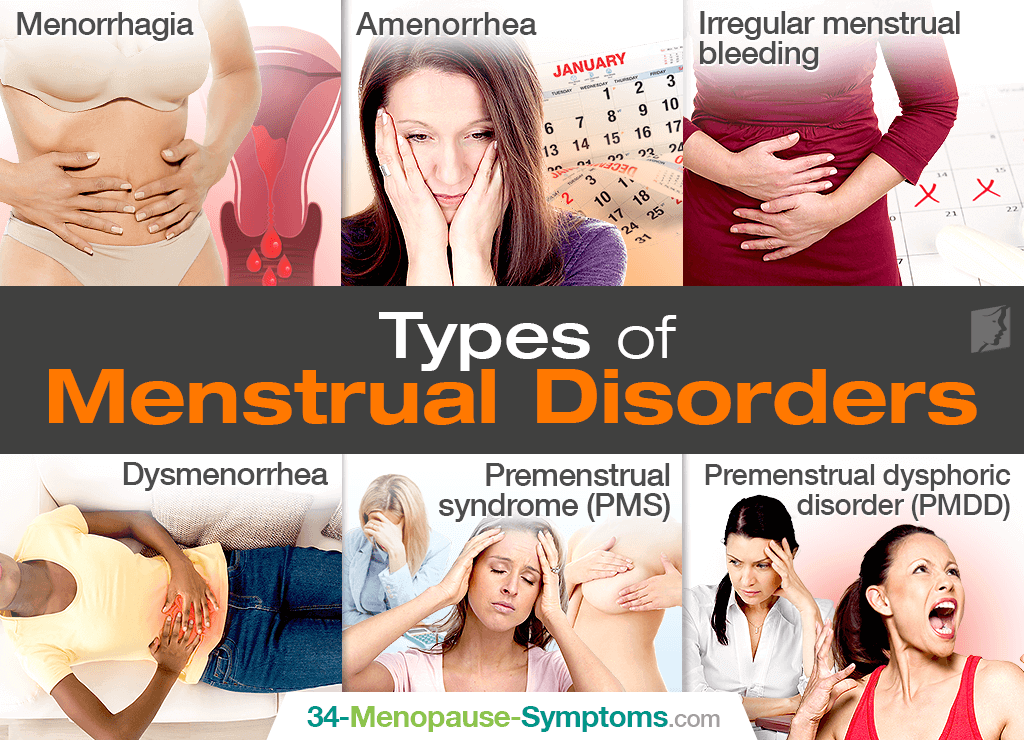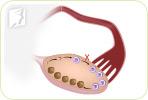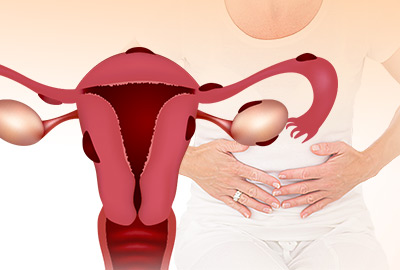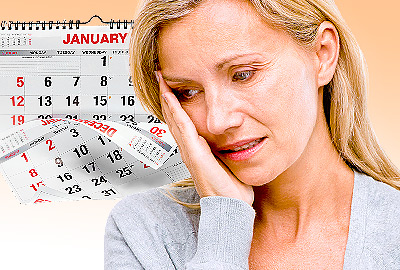Many women suffer from menstrual disorders at some point in their lives. The average woman has between 11 and 13 periods a year, and during this time, she may experience bloating, cramps, and heavy bleeding. Although period disorders can be painful and uncomfortable, there are ways to relieve some of the symptoms.
Read on to discover more about the different types, causes, and treatments of menstrual disorders, and take charge of your reproductive health today.
Types of Menstrual Disorders
The various menstrual cycle disorders that can occur throughout a woman's reproductive life include:
Menorrhagia
Menorrhagia, or heavy periods, affects one in five women. Bleeding is considered heavy if it interferes with your day-to-day-life. In general, a total blood loss during a monthly menses should not surmount about five tablespoons (73 mL or 2.5 oz.). Anything above 80 mL (2.7 oz.) is considered menorrhagia.
Amenorrhea
Amenorrhea, or absence of periods, is separated into primary and secondary. Primary amenorrhea is when a woman has not menstruated by the age of 16 due to an underlying health condition; whereas, secondary menorrhea is diagnosed when periods have stopped for three months or longer.
Irregular menstrual bleeding
Irregular menstrual bleeding varies from woman to woman. Generally, it is characterized as bleeding between periods. This includes spotting. Women should keep in mind that outside of their menses, it is usually not considered normal to have a full-blown period bleed.
Dysmenorrhea
This is the scientific name for painful periods due to intense cramps. Although almost all women have suffered from a painful period at some point, dysmenorrhea can be severe enough to hinder normal activities. Diarrhea and dizziness are symptomatic of this menstrual disorder.
Premenstrual syndrome (PMS)
PMS includes a variety of physical and psychological symptoms, which begin about a week before your expected period and end soon after the start of menses. Common symptoms include depressive states, bloating, headaches, breast tenderness, and fatigue.
Premenstrual dysphoric disorder (PMDD)
PMDD is more severe than PMS. While it is true that symptoms between the both menstrual disorders overlap, those who suffer from PMDD claim it significantly interferes with their lives. Most common PMDD symptoms include extreme anxiety, mood swings, and irritability.
Causes of Menstrual Disorders
Hormonal imbalance is the main culprit behind various disorders, such as polycystic ovary syndrome (PCOS), thyroid disease, endometriosis, and endometrial polyps, all of which can lead to menstrual disorders.
Other medical conditions can also cause menstrual abnormalities, like bleeding disorders; obesity; uncontrolled diabetes; and eating disorders, among others. Other possible causes include medications for mental health problems or epilepsy; overtraining; birth control; pelvic scarring from sexually transmitted infections; and many more.
Menstrual Disorders Treatment
Because there are numerous causes behind each type of menstrual disorder, work with your doctor to pinpoint the root cause. This will help the both of you determine the best treatment plan to pursue.
Since most menstrual disorders - including PMS - are rooted in hormonal imbalance, especially for menopausal women, it is essential to pursue treatments for irregular periods and period disorders that support endocrine system health.
Initially, these measures include lifestyle changes of optimizing your diet with foods rich in phytoestrogens; participating in regular exercise; and relieving stress through yoga, tai chi, or meditation. For improved results, consider the use of alternative medicines such as phytoestrogenic herbal supplements or hormone-regulating supplements. In the most severe of cases, hormone replacement therapy (HRT) may be recommended (with serious side effects involved).
In general, the safest option is to start with the least invasive treatment for menstrual disorders - lifestyle changes and alternative medicine - and then go on to the next level if necessary.
Sources
- Eunice Kennedy Shriver National Institute of Child Health and Human Development. (2017). What causes menstrual irregularities? Retrieved November 23, 2018, from https://www.nichd.nih.gov/health/topics/menstruation/conditioninfo/causes
- Healthy Women. (n.d.). Menstrual Disorders. Retrieved November 23, 2018, from https://www.healthywomen.org/condition/menstrual-disorders
- Summa Health. (n.d.). Menstrual Disorders. Retrieved November 23, 2018, from https://www.summahealth.org/medicalservices/womens/aboutourservices/gynecological-services/menstrual-disorders




